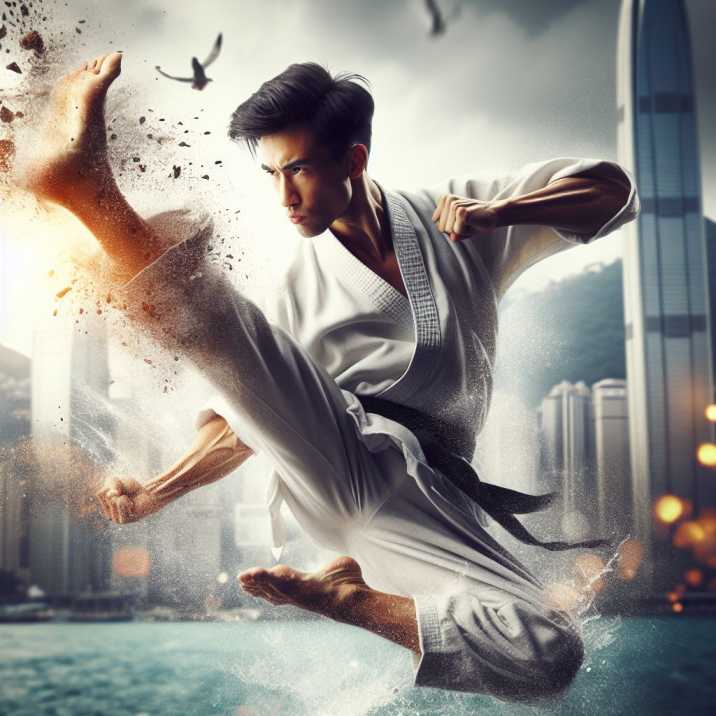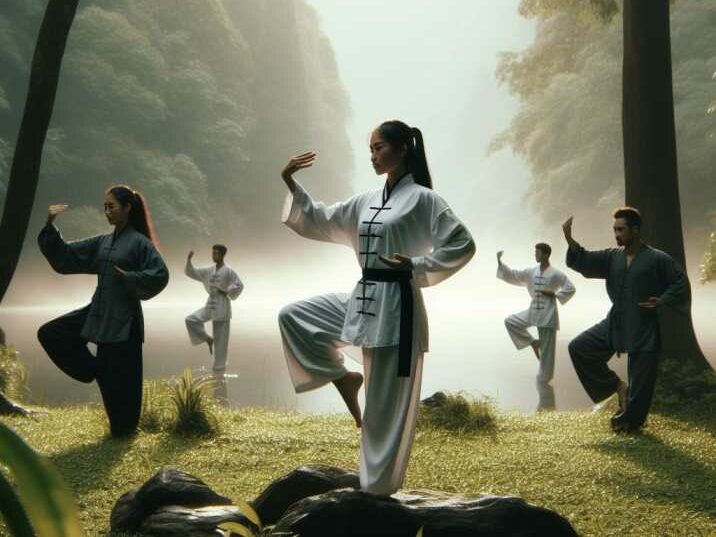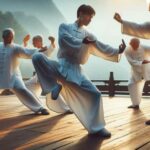Introduction:
Table of Contents
In the realm of martial arts, The influence of Kung Fu on modern martial arts, few disciplines hold as much mystique and reverence as Kung Fu. Its influence transcends time and borders, shaping the very essence of modern combat techniques. From the tranquil landscapes of ancient China to the bustling arenas of contemporary sports, the legacy of Kung Fu endures as a testament to human ingenuity and physical prowess. In this comprehensive guide, we will delve into the influence of Kung Fu on modern martial arts, exploring its significance across various subtopics.
Influence of Kung Fu on Modern Martial arts
Origins of Kung Fu:
Kung Fu, or Wushu in Mandarin, has its origins deeply rooted in the rich tapestry of Chinese culture and philosophy. Emerging over centuries, it draws inspiration from Taoist and Buddhist principles, emphasizing harmony, balance, and the cultivation of inner strength. Initially developed as a means of self-defense, Kung Fu evolved into a holistic system encompassing various fighting styles, each with its unique techniques and philosophies.
Evolution of Modern Martial Arts:
The evolution of modern martial arts owes a significant debt to the legacy of Kung Fu. As global interest in traditional Chinese culture grew, so too did the popularity of Kung Fu. During the 20th century, legendary martial artists such as Bruce Lee introduced Kung Fu to the Western world, sparking a martial arts renaissance that continues to this day.

Principles and Techniques:
At the heart of Kung Fu lies a profound emphasis on discipline, focus, and mastery. Its practitioners, known as martial artists, dedicate themselves to honing their skills through rigorous training and unwavering dedication. Central to Kung Fu are its core principles, including proper stance, breath control, and fluid movement, all of which are seamlessly integrated into modern martial arts practices.
Impact on Combat Sports:
The influence of Kung Fu on modern martial arts extends beyond traditional forms of combat, permeating the realm of modern combat sports. Techniques derived from Kung Fu, such as striking, grappling, and joint locks, are prevalent in disciplines like mixed martial arts (MMA), kickboxing, and Brazilian Jiu-Jitsu. Moreover, the philosophical underpinnings of Kung Fu, such as respect for opponents and the pursuit of personal growth, continue to shape the ethos of these sports.
Cultural and Global Influence:
Beyond its practical applications, Kung Fu serves as a cultural ambassador, spreading Chinese heritage and values to every corner of the globe. Martial arts schools dedicated to Kung Fu can be found in countries worldwide, where students of all ages and backgrounds come together to learn and grow. Additionally, Kung Fu’s portrayal in popular media, from classic films to contemporary blockbusters, further solidifies its status as a global cultural phenomenon.
Table of Information:
| Subtopic | Description |
|---|---|
| Origins of Kung Fu | Tracing the roots of Kung Fu and its philosophical basis |
| Evolution of Modern Martial Arts | How Kung Fu has influenced and shaped contemporary styles |
| Principles and Techniques | Key elements of Kung Fu incorporated into modern practices |
| Impact on Combat Sports | Kung Fu’s influence on various combat sports and competitions |
| Cultural and Global Influence | Spreading Kung Fu’s legacy and values worldwide |
Conclusion:
In conclusion, the influence of Kung Fu on modern martial arts is undeniable and far-reaching. From its humble origins in ancient China to its global impact in the 21st century, Kung Fu continues to shape combat techniques, inspire practitioners, and captivate audiences worldwide. As we look to the future, the legacy of Kung Fu serves as a timeless reminder of the enduring power of human determination, discipline, and spirit.

FAQs:
- What are the main principles of Kung Fu?
- Kung Fu emphasizes discipline, focus, and mastery, with core principles including proper stance, breath control, and fluid movement.
- How has Kung Fu influenced modern combat sports?
- Techniques derived from Kung Fu, such as striking, grappling, and joint locks, are prevalent in disciplines like MMA, kickboxing, and Brazilian Jiu-Jitsu.
- What role does Kung Fu play in Chinese culture?
- Kung Fu serves as a cultural ambassador, spreading Chinese heritage and values worldwide through martial arts schools and popular media.
- Who are some famous practitioners of Kung Fu?
- Bruce Lee, Jackie Chan, and Jet Li are among the most famous practitioners of Kung Fu, known for their skill and contributions to the martial arts world.
- Can anyone learn Kung Fu?
- Yes, Kung Fu is accessible to people of all ages and backgrounds, with dedicated training and commitment being the key to mastery.


